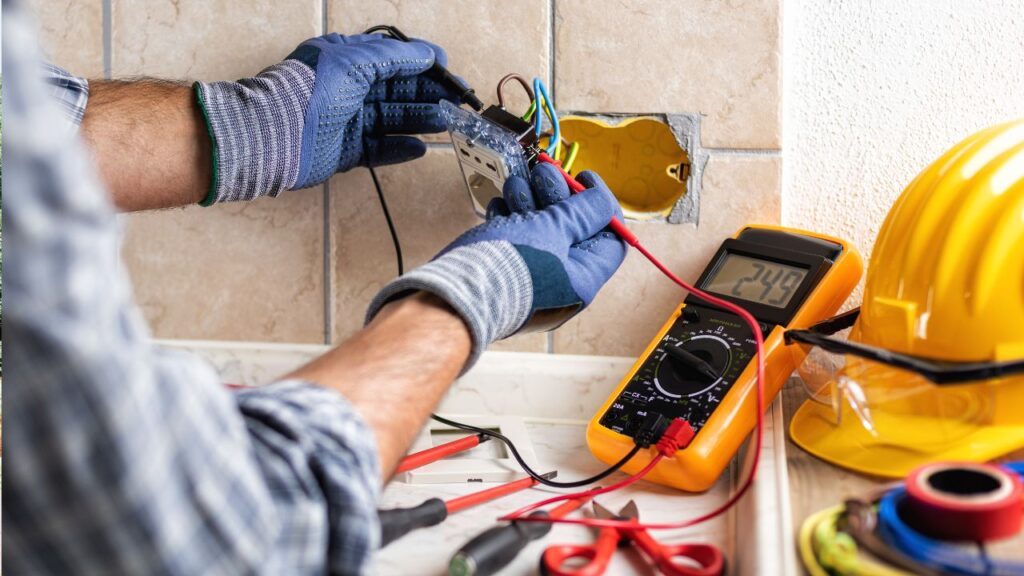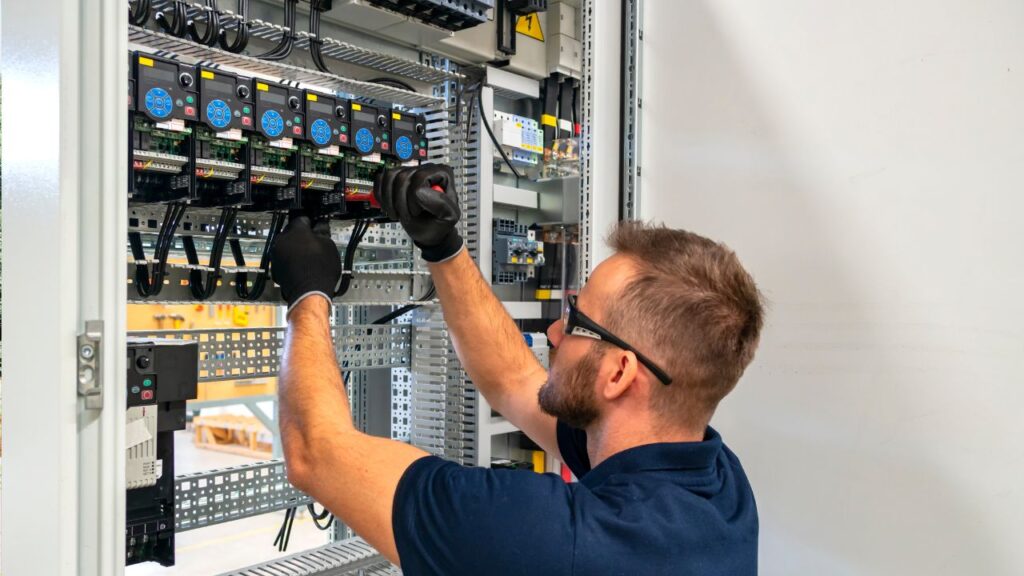Cost to wire or rewire a house
The national average cost to wire a new house is between $5,000 and $12,000. The average homeowner needs to pay $10,000 for new wiring, panel, outlets, and switches installed in a 2,000 sq. ft. house.

Building a new home or property is an exciting endeavor, full of creative possibilities and dreams coming to life. However, amid the excitement lies a practical consideration that can significantly impact the budget: new construction electrical costs. In this comprehensive guide, we’ll delve deep into the various aspects of electrical expenses, providing you with valuable insights to make informed decisions
Electrical wiring isn’t just about power; it’s about safety, efficiency, and functionality. The average cost per square foot for new construction electrical wiring ranges from $6.00 to $14.40. This variation stems from factors such as the building’s size, layout complexity, and the type of circuits required. Ensuring a well-designed and professionally installed electrical system is paramount for the longevity and functionality of your new property.

Understanding the cost breakdown for different rooms is essential for precise budgeting. Let’s examine the room-specific electrical costs:
Room | Square feet | Average Cost to Wire |
Kitchen | 100 – 200 | $691.20 – $3,110.40 |
Bedroom | 130 – 230 | $897.60 – $3,624 |
Bathroom | 40 – 150 | $276 – $2,688 |
Living room | 200 – 450 | $1,382.40 – $7,084.80 |
Basement | 500 – 1,500 | $3,456 – $23,328 |
Garage | 288 – 576 | $2,073.60 – $8,985.60 |
Shed | 50 – 450 | $345.60 – $7,084.80 |
Shop or metal building | 1,200 – 5,000 | $3,456 – $13,478.40+ |
For auxiliary structures like sheds, the expense of running underground power lines ranges from $17.28 to $43.20 per linear foot, accounting for factors such as soil type and distance.
Cost to wire or rewire a house
The national average cost to wire a new house is between $5,000 and $12,000. The average homeowner needs to pay $10,000 for new wiring, panel, outlets, and switches installed in a 2,000 sq. ft. house.

A critical aspect of electrical work is ensuring the proper installation of outlets and switches.
The costs of installing electrical lines can vary significantly. For a clearer picture, let’s break it down:
Considering the entirety of utility installations, including electricity, natural gas, and water well and septic systems, the comprehensive expenses average from $15,552 to $59,616.

Updating electrical systems in older homes is crucial for safety and functionality:
| Wire Type | Material Price per Linear Foot | Details & Uses |
| Coaxial | $0.12 – $0.86 | Communication cables |
| Direct Buried | $0.86 – $5.18 | Underground lines |
| Metallic Sheathed AC/BX | $1.02 – $6.12 | Interior applications |
| Non-metallic Sheathed | $0.86 – $5.18 | Residential wiring |
The complexity of commercial projects introduces unique dynamics:
In conclusion, embarking on a new construction journey requires comprehensive knowledge of electrical costs. By understanding the intricacies of these expenses, you’re better equipped to manage your budget effectively. Consulting with experienced electricians ensures precise estimates tailored to your project’s unique requirements. Remember, electrical work is an investment in safety, convenience, and the functionality of your new property.
Several factors play a role in determining electrical costs, including the size of the building, its layout, the number and complexity of circuits, the types of rooms, and the materials used.
The cost per square foot for electrical work takes into account the total cost of wiring, outlets, switches, and related components, and divides it by the square footage of the building.
The cost to wire different rooms varies due to factors such as room size, complexity, and electrical requirements. On average, kitchen and living rooms tend to be more expensive to wire compared to bedrooms and bathrooms.
Ground Fault Circuit Interrupter (GFCI) outlets are designed to prevent fatal electrical shocks. They are required in wet locations like bathrooms and kitchens, where water can increase the risk of electrical accidents.
Underground electrical lines are safer, more reliable, and aesthetically pleasing. They are less susceptible to weather damage and can improve the overall appearance of your property.
Updating electrical systems in old houses can be more expensive due to factors like outdated wiring, potential need for rewiring, and compliance with modern safety codes.
To estimate total electrical costs, consider the square footage, the number of rooms, the type and number of outlets, switches, and circuits needed, and any special electrical requirements. Consult an electrician for accurate estimates.
The NEC sets safety standards for electrical installations to prevent hazards such as electrical fires and shocks. Adhering to the NEC ensures your electrical system is safe and up to code.
Here I am going to share some steps to get your new construction electrical wiring cost estimate report.
You can send us your plan on info@estimatorflorida.com
Before starting your project, we send you a quote for your service. That quote will have detailed information about your project. Here you will get information about the size, difficulty, complexity and bid date when determining pricing.
We do new construction electrical wiring cost estimating and prepare a detailed report for your project. At last, you finalize the report and finish the project.



561-530-2845
info@estimatorflorida.com
Address
5245 Wiles Rd Apt 3-102 St. Pete Beach, FL 33073 United States
561-530-2845
info@estimatorflorida.com
Address
5245 Wiles Rd Apt 3-102 St. Pete Beach, FL 33073 United States
All copyright © Reserved | Designed By V Marketing Media | Disclaimer